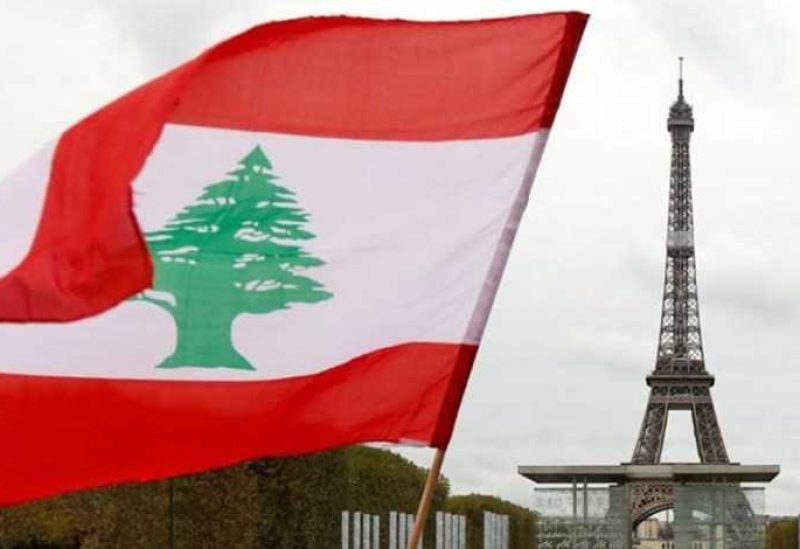
The Lebanese flag in Paris
Political sources in Lebanon suggest that France is well aware of the obstacles that have prevented international political and economic support for Lebanon during the six years of former President Michel Aoun’s tenure in Baabda Palace. They also recognize the strong connection between the presidential file, the identity of the new president, and their orientations toward the international support that Lebanon is awaiting to bring it back to the global map on one hand, and to rescue its economy and put it on the path to a solution on the other.
While the French presidential envoy, Jean-Yves Le Drian, worked on internal consensus after France realized that external consensus alone is not sufficient, no specific details of his mission have been revealed yet. His report to President Emmanuel Macron, whom he met before arriving in Beirut, is expected to shed light on his upcoming tasks in the following hours. It is possible that the French envoy will make additional visits to Beirut based on the recommendations conveyed to him by President Macron and the evolving French perspective that will be formulated.
French diplomatic sources emphasize that two fundamental considerations have not been overlooked by France regarding the Lebanese situation. These considerations are:
-Regional consensus, specifically between Saudi Arabia and Iran, will inevitably impact the presidential file, given the intersecting interests between the two parties and the French efforts to engage with both Riyadh and Tehran separately. The aim is to facilitate the election of a new president in Lebanon who would be accepted domestically and internationally.
France is well aware that any settlement that is not acceptable regionally and internationally will not contribute to Lebanon’s assistance, but rather subject it to further political and economic pressures. The guarantees provided through understanding regarding the president, in the event of Hezbollah’s dominance over the state’s mechanisms, may not be sustainable in the long term.
However, at the same time, according to the sources, France considers that Lebanon’s trajectory and the governance approach under any president assuming office will be influenced by the regional dynamics and the existing settlement atmosphere. The Lebanese situation cannot escape the repercussions of these factors. Consequently, the question arises: What guarantees will France offer and what criteria will it base its suitable choice for Lebanon upon? Will France resort to gathering Lebanese stakeholders in a certain capital to reach an agreement on a new president?
Based on that, there is a French focus on the performance of the new president and holding Lebanon accountable based on that performance, rather than solely on the selection process. However, the president’s political and economic performance requires French interventions to ensure a certain level of prevention of Hezbollah’s interference in implementing any internationally required path for Lebanon.
In any case, there is anticipation regarding the French evaluation of the presidential file, which will be a central topic of discussion between France and the member states of the Arab-International Quintet Committee on Lebanon.